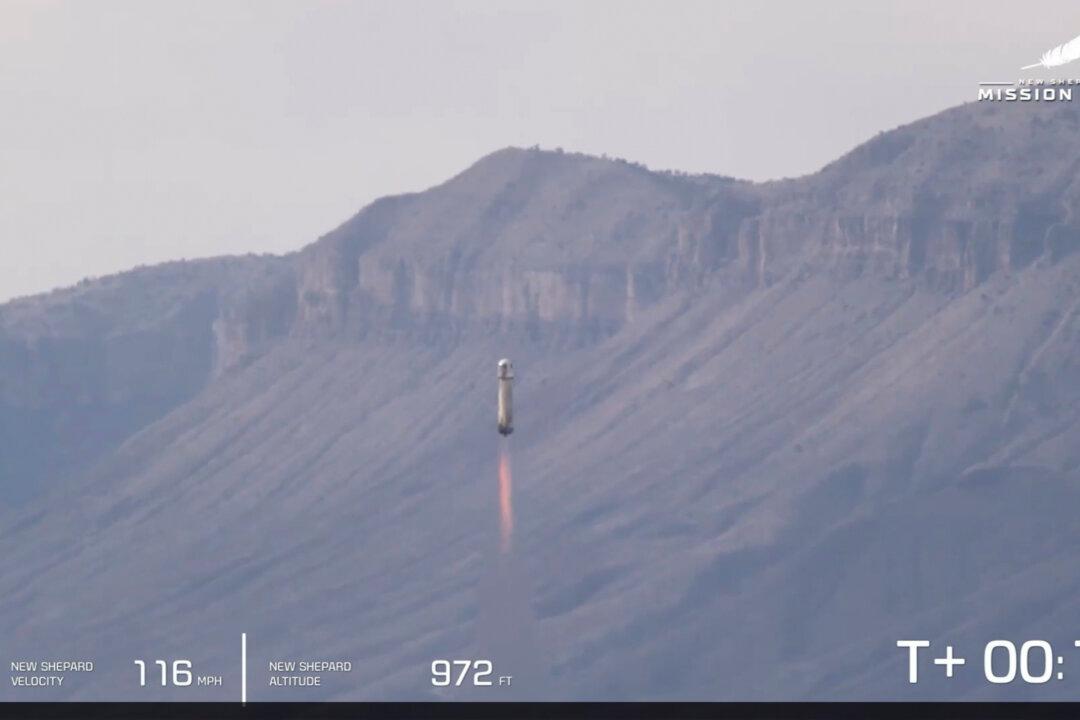Jeff Bezos’s space company successfully launched a rocket carrying experiments on Tuesday, its first flight since engine trouble caused a crash more than a year ago.
The New Shepard rocket soared from West Texas, lifting a capsule full of tests, many of which were aboard the failed Blue Origin launch in September 2022. No one was aboard that flight or this latest one.





